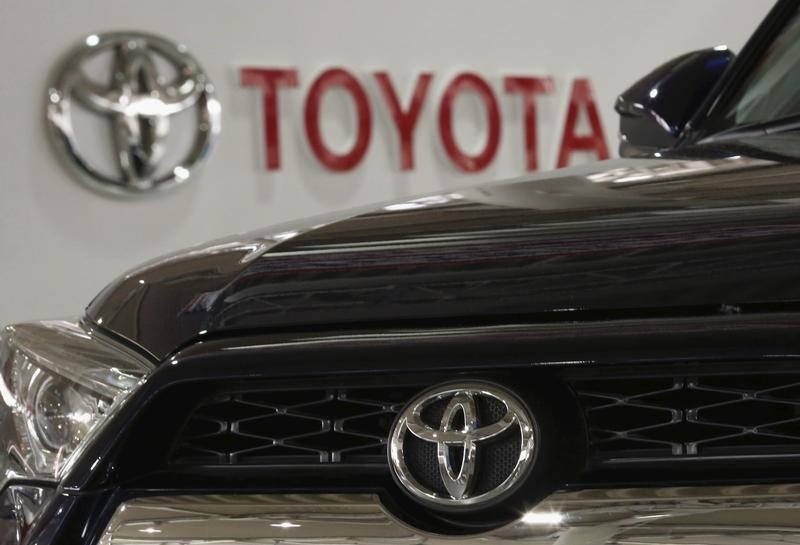By David Shepardson
WASHINGTON (Reuters) - Major automakers will announce Thursday they have agreed to install automatic emergency braking systems in nearly all U.S. vehicles by September 2022, three sources briefed on the plans said.
The U.S. National Highway Traffic Safety Administration (NHTSA) announced in September a deal in principle with 10 automakers to eventually add the technology to prevent thousands of crashes a year. The final agreement includes additional automakers and will be unveiled at a press conference in McLean, Va., at a press conference.
The final agreement includes automakers representing more than 99 percent of U.S. light vehicle sales. Among those joining the deal are Toyota Motor Corp (T:7203), General Motors Co (N:GM), Ford Motor Co (N:F)., Fiat Chrysler (NYSE:FCAU) Automobiles NV (MI:FCHA), Honda Motor Co (T:7267) and Volkswagen AG (DE:VOWG_p).
Automatic emergency braking includes systems designed to prevent crashes in which drivers do not apply the brakes or fail to apply enough braking power to avoid a collision.
Under the agreement, automakers will get slightly longer to add the technology to some vehicles with technical challenges, including some cars with manual transmissions.
NHTSA Administrator Mark Rosekind told Reuters in an interview last week that a voluntary agreement that could get the safety technology in vehicles before a legally binding rule was preferable. "We're very excited about this," Rosekind said, declining to confirm details.
The Insurance Institute for Highway Safety, a group that helped reach the voluntary agreement with automakers, has said as many as 20 percent of crashes could be prevented by the technology.
"Do the math. That’s 5 million crashes every year -- 20 percent reduction means 1 million less. Those are big numbers," Rosekind said in September.
The National Transportation Safety Board and Consumer Reports have both called for making the technology mandatory in all vehicles.
In 2012, rear-end crashes killed 1,705 Americans and injured 547,000 in the United States. About 87 percent of those deaths and injuries might have been prevented or lessened if vehicles had a collision avoidance system — because they were linked to driver inattention, researchers found.
Former NHTSA Administrator Joan Claybrook said the NHTSA should issue legally binding rules. She said the deal "was developed in secret with no public record of its factual basis, no legal requirement that companies comply and no penalties if a company lies about its compliance."
Rosekind has said it could take at least eight years to get legally binding rules in place.

(This story has been refiled to fix the spelling of Claybrook in paragraph 11.)